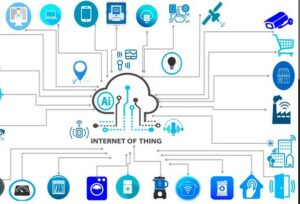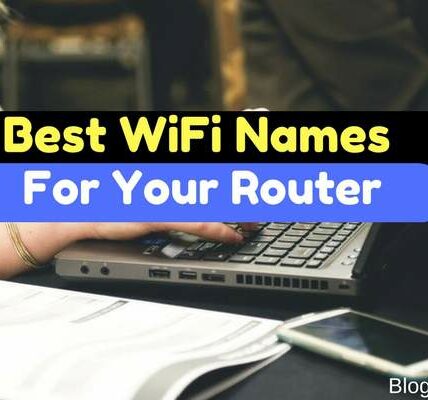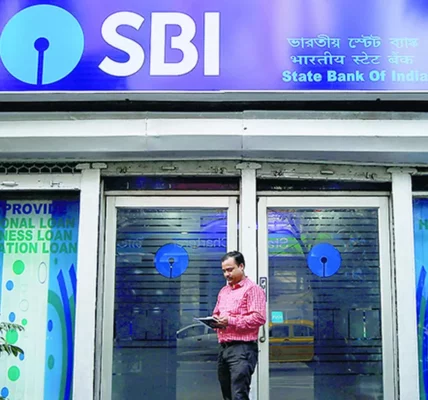In the vast tapestry of the modern world, there exists a common thread that binds humanity—a thread woven from the intricate strands of the internet. This article unravels the profound influence of the internet, exploring how it has become the epicenter of our existence, shaping the way we live, communicate, work, and perceive the world around us.

The Digital Revolution
The advent of the internet marked a pivotal moment in human history, akin to the invention of the printing press or the industrial revolution. It initiated a paradigm shift, transforming the way information is disseminated, connections are made, and businesses operate. As we navigate the digital landscape, it’s evident that everything, from personal interactions to global transactions, is now centered around the internet.
Connectivity Redefined
At its core, the net is a vast network of interconnected devices, creating a global village where distances shrink, and borders blur. It has redefined the very essence of connectivity, enabling instantaneous communication across continents. Social media platforms, email, and messaging apps have become the arteries through which human interactions flow, transcending geographical barriers.
Information at Our Fingertips
Never before in human history has information been so readily accessible. The internet has democratized knowledge, making information a ubiquitous commodity. Search engines serve as our digital librarians, and online databases are the repositories of the collective wisdom of humanity. From academic research to DIY tutorials, the internet is a boundless resource waiting to be explored.
Shaping Personal Identities
The internet is not just a tool; it’s a mirror reflecting and shaping our identities. Social media profiles have become digital canvases where individuals paint portraits of their lives. The choices we make online, from the content we share to the communities we engage with, contribute to the construction of our digital personas.
The Workplace Transformed
In the realm of employment, the internet has revolutionized the traditional workplace. Remote work, online collaboration tools, and virtual meetings have become integral components of the modern work environment. The internet’s role in professional life goes beyond convenience; it has redefined the very concept of the workplace, making it more fluid and adaptable.
E-Commerce Boom
The net has given rise to a global marketplace where transactions occur with just a few clicks. E-commerce platforms have transformed the way we shop, offering unparalleled convenience and access to a myriad of products and services. From groceries to luxury goods, the internet has turned every device into a virtual storefront.
Entertainment Unbound
Our entertainment experiences are no longer confined to traditional mediums. Streaming services, online gaming, and digital content creation have ushered in a new era of entertainment. The internet has democratized creativity, allowing individuals to become content creators and consumers simultaneously, blurring the lines between creators and their audience.
Navigating the Digital Social Sphere
Social interactions have migrated from physical spaces to the digital realm. Online forums, social media, and virtual communities have become platforms for discourse, connection, and activism. The internet has amplified voices, providing a stage for diverse narratives and perspectives to be heard on a global scale.
Personalization and AI
The net is not just a passive entity; it’s a dynamic force that adapts to our preferences. Algorithms powered by artificial intelligence curate personalized content, shaping our online experiences. From tailored news feeds to recommended playlists, the internet constantly evolves based on our behaviors, creating a digital ecosystem finely tuned to our preferences.
Challenges of the Digital Age
As the internet permeates every facet of our lives, it brings along a set of challenges. Issues of privacy, cybersecurity, and digital misinformation have become pressing concerns. Navigating the online landscape requires digital literacy, and society grapples with finding a balance between the benefits and drawbacks of an increasingly interconnected world.
Internet of Things (IoT) and Smart Living
The Internet of Things (IoT) extends the internet’s reach beyond traditional devices to everyday objects. Smart homes, wearable technology, and connected appliances are part of a growing ecosystem where the internet seamlessly integrates with our physical surroundings. This connectivity enhances efficiency, convenience, and the overall quality of life.
Healthcare in the Digital Era
The internet has transformed healthcare, making information, resources, and telemedicine accessible to a global audience. From health monitoring apps to online consultations, the digitalization of healthcare has the potential to revolutionize medical services, making them more accessible and patient-centric.
Educational Revolution
Education has undergone a digital revolution, with online learning platforms offering a plethora of courses and resources. The internet has democratized education, allowing individuals worldwide to access knowledge and skills irrespective of geographical constraints. It has become a cornerstone of lifelong learning.
The Rise of Social Activism
The internet has empowered social activism, providing a platform for individuals and movements to amplify their voices. Social media campaigns, online petitions, and digital advocacy have proven to be powerful tools for driving social change. The internet has transformed how we engage with social issues and participate in collective action.
Quantum Leap in Communication
The evolution of the internet has seen a quantum leap in communication. From the era of dial-up connections to high-speed broadband and 5G networks, the speed and reliability of internet communication have transformed the way we connect with each other. Video calls, live streaming, and virtual reality experiences have become commonplace, bringing a sense of immediacy to our digital interactions.
Bridging the Digital Divide
While the internet has become a ubiquitous presence in many parts of the world, a digital divide still exists. Efforts to bridge this gap include initiatives to increase internet accessibility, particularly in underserved regions. Bridging the digital divide is crucial for ensuring that the benefits of the internet are accessible to all, regardless of geographical location or socioeconomic status.
The Future of the Internet
As we stand at the cusp of the future, the trajectory of the internet continues to unfold. Innovations like blockchain, augmented reality, and the evolution of AI are poised to reshape the digital landscape. The internet’s role as the epicenter of modern existence is set to expand, presenting both exciting possibilities and challenges on the horizon.
Conclusion
The internet, once a novel concept, has become an inseparable part of our daily lives. It is the epicenter around which our modern existence orbits—a dynamic force that has reshaped how we communicate, work, learn, and perceive the world. As we navigate the digital age, the internet remains a catalyst for change, a facilitator of connections, and a canvas for the collective aspirations of humanity. In this ever-evolving landscape, the internet stands as a testament to the boundless potential of human innovation and connectivity.




